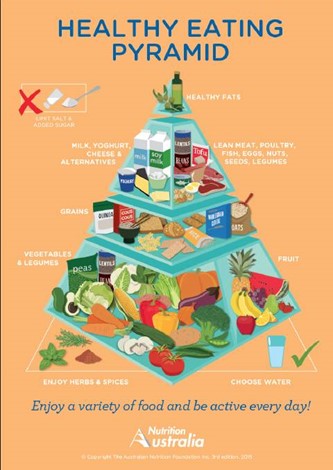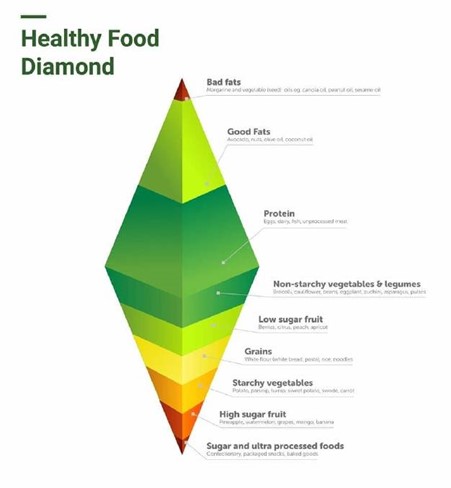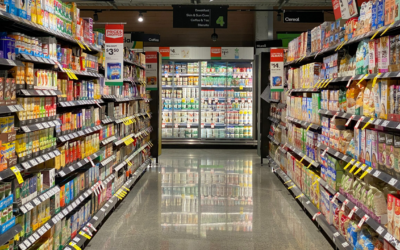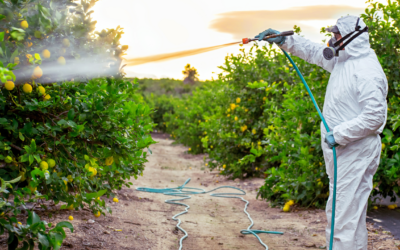Silent Assassin: Don’t turn a blind eye to the dangers of a sugar-filled diet.
I doubt there are any children these days who think smoking is healthy. Back in the 1950s though, cigarettes were considered socially acceptable. In the years following World War II, 80 per cent of men smoked. The realisation of the health dangers of smoking in the 1960s and the subsequent banning of advertising for cigarettes, the taxing of tobacco products and the rollout of hard-hitting and graphic awareness strategies have combined to make smoking a socially unacceptable habit. As a result, smoking and smoking-related diseases and deaths are on the decline in most countries.
I suspect there are plenty of kids and their parents who don’t realise that sugar can be unhealthy. And yet, there are more than 8000 studies linking sugar to a range of serious yet completely avoidable chronic diseases – most of which begin in childhood.
What are these diseases?
Tooth decay: 40 per cent of our 10- to 12 year-olds have decay in their adult teeth. Extraction of decayed teeth is the leading reason for days off school and surgical admissions for children.
Obesity: A quarter of Aussie kids are overweight or obese. And there’s a disturbing upward trend. The majority of today’s children will have obesity at age 35 if we don’t take action now.
Type 2 diabetes: Obesity is the biggest risk factor for this life-changing and life-threatening disease, which is diagnosed in more than 100,000 Aussies each year, and is now appearing in kids as young as three – a disease that not so long ago was known as “mature-onset diabetes”. Although obesity is the biggest risk factor for type 2 diabetes, it’s important to realise there are now more thin metabolically unhealthy people than there are overweight or obese metabolically unhealthy people. You may be thin on the outside but “fat” on the inside, without even knowing you are unhealthy.
What’s causing this?
It’s our diet. Our poor diet – a diet packed with sugar – is responsible for more disease and death than tobacco, alcohol and inactivity combined. Table sugar is what we usually think of when we think of sugar. But it’s important to know there’s another abundant form of sugar: refined carbohydrates. Products such as rice and flour, peeled white potatoes and foods prepared from these are sugar in disguise. Refined carbs are virtually pure starch and starch is just a long chain of glucose which breaks down into single glucose molecules when it reaches the gut. When you consume refined carbs you are, quite simply, consuming sugar.
Sugar and refined carbs are nutrient-poor and non-essential. There’s not a single biochemical process in our bodies that demands we ingest them. And yet, they’re the major ingredients of most packaged ultra-processed foods, or what I prefer to call ultra-processed food-like substances. These unhealthy substances make up 62 per cent of the US diet and 50 per cent of the British diet. I suspect the Australian diet is no different. Disturbingly, the Australian Government’s Australian Guide For Healthy Eating, which is based on our Australian Dietary Guidelines, is packed with foods made from refined carbs, as well as foods that are relatively high in sugar, and ultra-processed substances. Can this document truly be considered a guide to healthy eating?
How sugar causes poor health
Sugar, refined carbs and ultra-processed substances can lead to a condition known as insulin resistance. This is a complex metabolic process, so I’ll keep it simple. Table sugar – sucrose – is made up of equal parts glucose and fructose. Let’s look at glucose first. As soon as glucose is absorbed into the bloodstream from the gut, it triggers the release of the hormone insulin from the pancreas. And the insulin helps move the glucose into every cell of our body, where its either stored or used as an energy source.
With prolonged and excessive consumption of sugar and refined carbs, the cells fill up with glucose. The insulin level rises to push more glucose into our cells, but a point is reached when the insulin can’t push any more in. We are now resistant to the effect of insulin. We are insulin resistant. The resulting overflow of glucose into the bloodstream is taken up by the liver where it’s stored as glycogen, and may eventually be converted to fat, which is then stored within the liver.
Fructose – that other half of table sugar – is what gives sugary products like fruit their sweet taste. It’s not recognised as a food by the body and, when absorbed into the bloodstream, doesn’t trigger the release of insulin. Most of the fructose is metabolised by the liver, where the impact is toxic and can independently give rise to insulin resistance. Seed oils found in cooking oils and margarine and many ultra-processed substances can also directly lead to insulin resistance within the liver and the laying down of dangerous visceral fat in the abdominal organs. The increasing metabolic dysfunction driven by insulin resistance is seen externally as an increasing waistline. The progressive build-up of visceral fat caused by sugar and seed oils ultimately leads to a fatty liver and pancreas. In humans who consume excessive sugar, a fatty liver can appear within two months. And fatty liver and pancreas are key to the development of type 2 diabetes.
What is the result?
People with type 2 diabetes face years of unnecessary and expensive medical appointments and lost work and life opportunities and potentially devastating complications. Blindness is the most feared complication and the one I deal with every day at work. Diabetes is now the leading cause of blindness among working-age adults in this country. Fortunately, eye disease due to diabetes is rare in kids, although it has been reported. And the damage can certainly begin in childhood. Type 2 diabetes is also a deadly disease. In 2020 we lost 15 times more lives to it than to COVID-19. And we’re 12 times more likely to die from COVID-19 if we have a diet-related chronic disease such as obesity or type 2 diabetes. This is a silent, deadly epidemic that’s been largely ignored.
Why do we have this epidemic?
That’s a long story involving religious ideology, corrupt science and the might of the corporate food industry. It’s a disturbing 150-year history that culminated in the release in 1980 of the Dietary Guidelines for Americans, which discouraged the eating of saturated fat and cholesterol. The scientific evidence was not strong and indeed flawed and manipulated. To compensate for the lack of flavour caused by removing fat from food, carbs had to increase. This low-fat, high-carb dietary recommendation persists to this day across the globe, and in our own Australian Dietary Guidelines.
“Sugar and refined carbs are nutrient poor and non-essential. There’s not a single biochemical process in our bodies that demands we ingest them.”
As a result, cardiovascular diseases such as heart attack and stroke have soared and type 2 diabetes has seen a four-fold increase globally over the past 40 years, profoundly affecting some communities. In First Nations Australians we’ve seen an 80-fold increase in type 2 diabetes since 1980, with 7-year-olds now diagnosed. I’ve no doubt that the poor diet that Aboriginal people have been encouraged to consume is driving this catastrophic epidemic – a diet packed with refined carbs and ultra-processed substances and far removed from their traditional way of eating.
The impact of type 2 diabetes is also weighted toward lower socio-economic areas. In Greater Western Sydney, for example, half of all adults over the age of 24 have either pre-diabetes or type 2. For the first time in our history, we are overfed but undernourished. And it begins in childhood.
A dietary cure for a dietary disease
If tooth decay, obesity and type 2 diabetes are man-made dietary diseases, then surely there’s a dietary cure? Yes, it should be as simple as reducing consumption of refined carbs, ultra-processed substances and, above all, sugar.
But there are a number of factors making this a difficult goal to achieve – what I call my “Five A’s of Sugar Toxicity”:
Addiction: Sugar is as addictive as nicotine. It triggers the reward centre in our brains, releasing neurotransmitters such as dopamine, which makes us feel good and crave more. Sugar is the only addictive substance that we willingly give to our babies.
Alleviation: We often use sugar to feel better when we’re down or anxious. Our brain needs to balance the stress hormone cortisol by releasing feel-good chemicals and sugar is good at triggering this.
Accessibility: Sugar is cheap and it’s everywhere. We are being tested constantly – even at the counter of some pharmacies!
Addition: 75% of our consumables have added sugar – and there are at least 260 different names for it, so nutrition labels don’t always help. The health star rating system is flawed: designed by the food industry and used by only 30% of manufacturers.
Advertising: “Breakfast is the most important meal of the day” is a slogan popularised in 1906 by John Harvey Kellogg to market his newly breakfast cereal, Corn Flakes. A century later, there’s still no evidence to support the claim. Indeed, our kids will likely do better by avoiding cereal for brekkie. But there’s no escaping the daily bombardment of ads for sugary and ultra-processed food and drinks.
What can be done about this? How can we stop this predation? No doubt there needs to be courage, visionary leadership and decisive action, which I’d sum up with another three “A’s”: awareness, accountability and assistance.
Awareness: We all need to be aware of the health dangers of sugary drinks and ultra-processed non-foods. Education has to begin in those formative first few years of school. Or even earlier, during pregnancy: glucose from the mother crosses into the blood circulation of the fetus, but insulin does not, and so our kids may be primed for a range of chronic and behavioural diseases before they’re even born. For mothers who can breastfeed, the longer the better, to forge good metabolic health in their offspring.
I came to understand the addictive power of sugar and ultra-processed substances only recently, and I’m a medical doctor. Once you’re aware, you can begin to reduce the amount of sugar in your kids’ diet – to detox them. And, once you’re aware that sugar is often used to alleviate stress, it’s possible to replace it with healthier options to activate the feel-good centre. Send the kids outside to play. Music is also a powerful trigger. How good do we feel when we’re listening to our favourite songs?
We also should be aware that type 2 diabetes is largely preventable. A comprehensive overhaul of our national dietary guidelines will help. This powerful but outdated, flawed and biased document informs what’s fed to our kids, what they are taught at school and decisions made by health practitioners and policy-makers.
As one example, South Australia’s “Right Bite Policy” for schools uses the Australian Dietary Guidelines for Children & Adolescents from 2003 as its source of nutritional advice. It encourages “plenty of cereals, grains, vegetables, legumes and fruits” – a carb-heavy diet. We also need to look at Nutrition Australia’s “Food Pyramid” which encourages a carb-heavy, plant-based diet and continues to discourage the eating of healthy fats. Don’t get me wrong, I love my fruit and veg, but when you realise that Nutrition Australia is part of an industry collaboration with a “vested interest in growing consumption of fruit and vegetables in Australia”, is it any wonder they’re pushing a plant-based diet?

Nutrition Australia’s Healthy Eating Pyramid is based on the Australian Dietary Guidelines (2013).
We need to celebrate the natural saturated fats in our food, including those sourced from animals; fats that are critical to the health and development of our kids; fats like those found in unprocessed red meat, eggs and full-fat dairy; healthy saturated fats that are not associated with an increased risk of cardiovascular disease; fats that have been demonised for over 50 years.
Perhaps my “Food Diamond” (see below) is more balanced and provides a better guide as to how we should eat because it:
- Encourages the eating of foods containing healthy saturated fats, from both animals and plants;
- Minimises cereals and highly refined grains, high-sugar fruits and starchy vegetables; and
- Avoids ultra-processed substances and unhealthy fats such as margarine and vegetable oils.

Dr James Muecke’s Healthy Food Diamond
We also need to be aware that type 2 diabetes is potentially reversible. If your child had cancer, you’d want to know whether it could be put into remission. It’s also your right to know that type 2 diabetes can be put into remission; that the humiliation and destruction that accompanies this insidious disease can be avoided.
There are proven dietary methods that put type 2 into remission. More than 100 controlled clinical trials show that a low-carb, healthy fat diet works to prevent and reverse type 2 diabetes. There’s no evidence to show that the high-carb recommendations of our national dietary guidelines can prevent type 2 diabetes, a disease of carbohydrate intolerance. We need to flip our current eating pattern on its head, shifting to a low-carb approach, with a good dose of essential satiating proteins and healthy fats.
Accountability: Business and industry need to do the right thing. They know children are hard-wired to like sweet things and they prey on sugar addiction and its withdrawal symptoms. Businesses flood our lives with junk food and sugar-loaded drinks, making it impossible for our kids to escape the lure. Business and industry must also account for the amount of sugar they add to products. And they need to be make it clear so parents are not baffled by unidentifiable alternative names for sugar.
Schools are by no means innocent. They need to critically review what’s sold in canteens and find other – healthier – ways to raise funds for sports equipment. Sports clubs need to find healthy food sponsors rather than rely on fast food, junk food and sugary drink industries. After all, even hyper-active kids can’t outrun a bad diet.
Above all, governments need to be held to account. Our flawed health star rating system has to be overhauled and industry influence removed. It was a relief to see that orange juice was downgraded to two stars earlier this year. How can a drink with as much sugar as a glass of Cola possibly receive the healthiest 5-star rating? Encourage your kids to eat the whole fruit rather than the sugary juice. Nature has packaged fructose – the poison – together with fibre – its antidote. As well as filling you up, the fibre in whole fruit slows down the absorption of the toxic fructose component.
In the next review of the Australian Dietary Guidelines, the recommendations must be grounded in solid science, relevant to all Australians and free of food industry bias. The rampant marketing juggernauts of the ultra-processed food and sugary drinks industries must be reined in. Some 70 per cent of Aussie parents say they want government to help protect their kids from the predatory marketing of unhealthy products. Clearly, we still have a long way to go.
Assistance: Each and every one of us needs help. Doctors need it to educate and manage patients with diseases such as obesity and type 2 diabetes. Teachers need the appropriate tools and training to guide young people toward a healthier future. Parents need assistance to know the best foods for their kids. The resources are out there for doctors, schools and parents.
Aussies from every walk of life also need access to affordable fresh food – real food that reduces the risk chronic disease. A recent international poll confirmed that the thing we care about most in life is our health. As parents, health practitioners, teachers and community leaders, we cannot afford to turn a blind eye any longer. Write to your school principal, your sports club or your local MP. Join a movement. It’s time to act, and to set our children on the path to an Australia free from chronic diseases like type 2 diabetes.
Some great videos to watch on this topic also from James Muecke

Dr James Muecke is an Adelaide-based ophthalmologist and co-founder of the eye health charity Sight For All. He was Australian of the Year for 2020





0 Comments